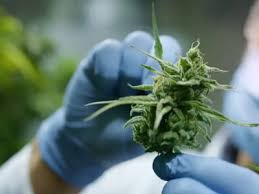
Medical cannabis has been used as a treatment for various medical conditions. It is also
used to help people cope with the side effects of other medications. However, some people
may be concerned about the possible effect on testosterone production. This article will
look at medical cannabis and testosterone due to testosterone production. The human body produces
hormones in two ways: through endocrine glands and metabolizing certain foods into
hormones. The most important hormone produced by the endocrine system is testosterone,
which is primarily produced by the testicles. Medical cannabis affects testosterone production
in several ways. One way that it does so is via its ability to increase estrogen levels within the
body by activating specific receptors on cells. In addition, medical cannabis can decrease
testosterone levels if you’re taking other medication or supplements that can have harmful
interactions with this drug; medical cannabis can also affect your pituitary gland and
hypothalamus, which are responsible for managing your hormones as well as producing more
them.
As a man, testosterone is essential for your general wellness. It can help you to build muscle
and increase your libido. However, if you are a medical cannabis patient, you may have
concerns about the effect medical cannabis has on testosterone. The good news is that this
drug does not interfere with the primate’s ability to produce this hormone. Medical
cannabis can help you to produce more of this hormone. The reason for this is
that it stimulates the endocannabinoid system, which is an essential part of your body’s
endocrine system.
Medical cannabis is also able to affect your thyroid gland. This gland plays a role in
regulating many functions within the body, including metabolism and growth. A decrease in
thyroid hormones can result in some medical conditions, including general weakness
and fatigue and mental problems such as depression and anxiety. Medical cannabis can
increase or decrease the amount of thyroxin that you produce by stimulating or suppressing
specific receptors on cells within your thyroid gland.
The pituitary gland plays a role in controlling many functions within the body, such as
reproductive development and stress response. Medical cannabis can affect this gland by
affecting your hypothalamus and pituitary gland’s ability to communicate with each other
through their chemical signals called neuropeptides. Medical cannabis has been shown to
decrease the production of one of these neuropeptides called prolactin, which can lead to a
number of medical conditions such as infertility and erectile dysfunction.
Medical cannabis has also been shown to affect your immune system. This system is
responsible for protecting your body from foreign invaders like bacteria and viruses, and
helps you fight off illness when





